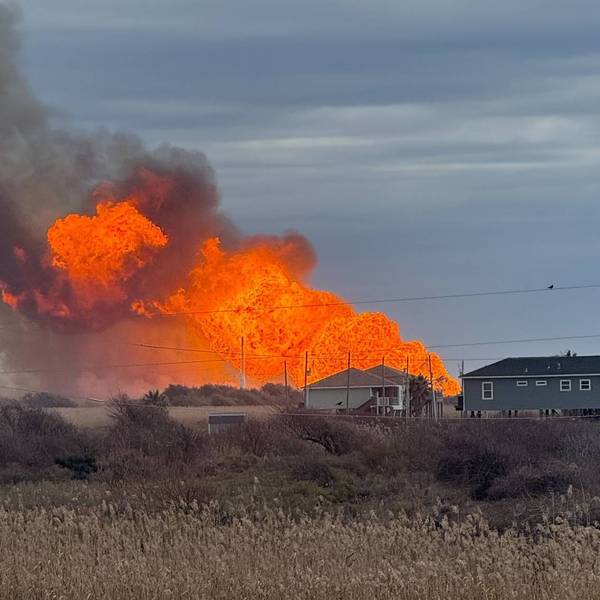The proposed merger between pipeline giants Enbridge and Spectra would have devastating consequences for consumers and the climate, and would significantly reduce competition in the marketplace, according to a new analysis released Wednesday by the advocacy group Food & Water Watch (FWW).
The group called on the Federal Trade Commission (FTC) to reject the proposal, announced last year, which would see the creation of the largest energy-infrastructure firm in the country--one that would control approximately a fifth of North America's natural gas supplies, as well as a large chunk of its processing capacity and other infrastructure.
Enbridge is based in Calgary, and Spectra in Houston. According to the group's analysis (pdf), the merger would give the companies control of 79 percent of the offshore Gulf of Mexico-Louisiana natural gas pipeline network; 92 percent of the pipelines crossing the U.S.-Canada border; and 100 percent of the pipelines in and out of Michigan.
It would also enable Enbridge-Spectra to raise prices on consumers or increase costs for its rivals in those key regions at will.
"An Enbridge-Spectra mega-merger would create a domineering fossil fuel monopoly that would have the economic and political power to arbitrarily raise prices on consumers by manipulating the market at every stage of the natural gas product cycle, from the wellhead to the meter," said FWW executive director Wenonah Hauter.
Both companies also have a history of safety issues, with a track record of leaks and spills that have impacted surrounding communities and environments. From 1996 to 2015, Enbridge unintentionally released more than 54,000 barrels of oils and natural liquids. Its leaks and other releases doubled during that time, from 54 to 117, the analysis states.
A notorious 2010 incident saw one of its pipelines spill up to 1 million gallons of crude in Michigan's Kalamazoo River and Talmadge Creek, contaminating the local environment. Nearby residents reported neurological, gastrointestinal, and respiratory problems, while Enbridge was ordered to pay $75 million in cleanup costs alone.
"The merger would create a sprawling 38,000-mile oil and gas pipeline network--and with both firms carrying disturbing safety and service records, this deal would put the wellbeing of countless communities at risk," Hauter said. "The FTC must extend its review of this dangerous, anti-consumer merger, and ultimately reject it."
Shareholders for both companies approved the deal last month.



